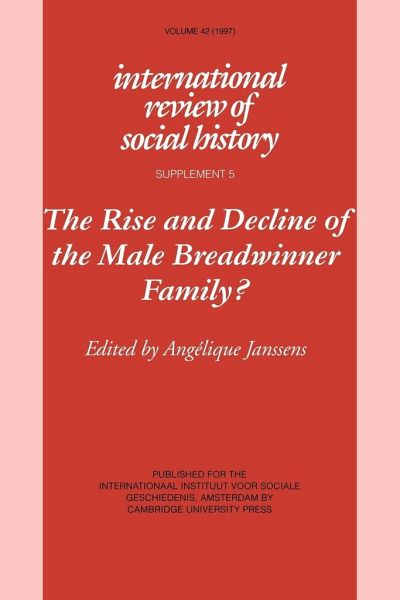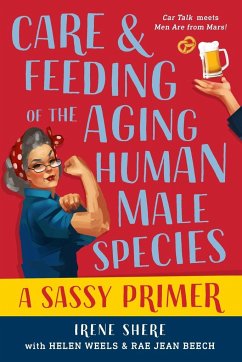
The Rise and Decline of the Male Breadwinner Family?
Studies in Gendered Patterns of Labour Division and Household Organisation
Herausgeber: Janssens, Angelique; Angelique, Janssens
Versandkostenfrei!
Versandfertig in 1-2 Wochen
29,99 €
inkl. MwSt.

PAYBACK Punkte
15 °P sammeln!
This collection of essays looks at the origins and expansion of different patterns of breadwinning in both western and non-western history. As a collection it provides new insights into the historical and cross-cultural development of the male breadwinner family and its determinants, and, as such, it provides an important contribution to the ongoing debate on patterns of breadwinning. An important range of factors previously undervalued in the debate are considered: the effects of local labour markets in interaction with family strategies and family values; employers' strategies and the effect...
This collection of essays looks at the origins and expansion of different patterns of breadwinning in both western and non-western history. As a collection it provides new insights into the historical and cross-cultural development of the male breadwinner family and its determinants, and, as such, it provides an important contribution to the ongoing debate on patterns of breadwinning. An important range of factors previously undervalued in the debate are considered: the effects of local labour markets in interaction with family strategies and family values; employers' strategies and the effects of capital accumulation and the rise of international commercial networks; the effects of egalitarian communist ideologies; and the differential ways in which modern welfare states were constructed. The volume calls for a renewed research effort in order to reconstruct the male breadwinner family as the norm and to work towards the integration of different explanatory models.
Table of contents:
1. The rise and decline of the male breadwinner family? An overview of the debate Angélique Janssens; 2. The origins and expansion of the male breadwinner family: the case of nineteenth-century Britain Sarah Horrell and Jane Humphries; 3. Gendered exclusion: domesticity and dependence in Bengal Samita Sen; 4. Breadwinning patterns and family exogenous factors: workers at the tobacco factory of Seville during the industrialization process, 1887-1945 Lina Gálvez-Muñoz; 5. Family, work and wages: the Stéphanois region of France, 1840-1914 Michael Hanagan; 6. Welfare state attitudes to the male breadwinning system: the United States and Sweden in comparative perspective Lena Sommestad; 7. Comparing the post-war Germanies: breadwinner ideology and women's employment in the divided nation, 1948-1970 Christine von Oertzen and Almut Rietzschel; Notes on contributors.
This collection of essays looks at the origins and expansion of different patterns of breadwinning in both western and non-western history. As a collection it provides new insights into the historical and cross-cultural development of the male breadwinner family and its determinants, and as such, it provides an important contribution to the ongoing debate on patterns of breadwinning.
The essays look at the origins and expansion of different patterns of breadwinning.
Table of contents:
1. The rise and decline of the male breadwinner family? An overview of the debate Angélique Janssens; 2. The origins and expansion of the male breadwinner family: the case of nineteenth-century Britain Sarah Horrell and Jane Humphries; 3. Gendered exclusion: domesticity and dependence in Bengal Samita Sen; 4. Breadwinning patterns and family exogenous factors: workers at the tobacco factory of Seville during the industrialization process, 1887-1945 Lina Gálvez-Muñoz; 5. Family, work and wages: the Stéphanois region of France, 1840-1914 Michael Hanagan; 6. Welfare state attitudes to the male breadwinning system: the United States and Sweden in comparative perspective Lena Sommestad; 7. Comparing the post-war Germanies: breadwinner ideology and women's employment in the divided nation, 1948-1970 Christine von Oertzen and Almut Rietzschel; Notes on contributors.
This collection of essays looks at the origins and expansion of different patterns of breadwinning in both western and non-western history. As a collection it provides new insights into the historical and cross-cultural development of the male breadwinner family and its determinants, and as such, it provides an important contribution to the ongoing debate on patterns of breadwinning.
The essays look at the origins and expansion of different patterns of breadwinning.














